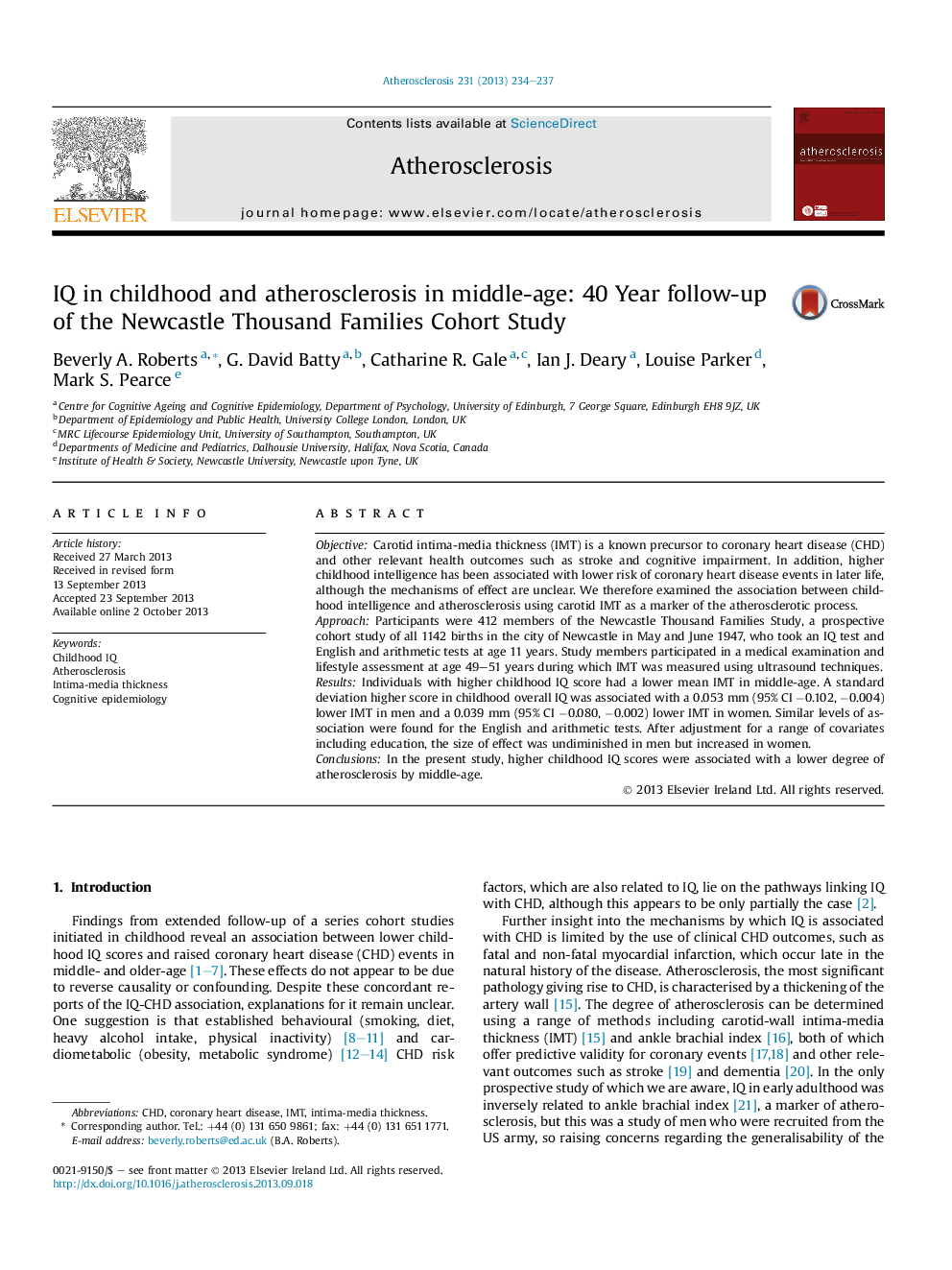| Article ID | Journal | Published Year | Pages | File Type |
|---|---|---|---|---|
| 5946364 | Atherosclerosis | 2013 | 4 Pages |
ObjectiveCarotid intima-media thickness (IMT) is a known precursor to coronary heart disease (CHD) and other relevant health outcomes such as stroke and cognitive impairment. In addition, higher childhood intelligence has been associated with lower risk of coronary heart disease events in later life, although the mechanisms of effect are unclear. We therefore examined the association between childhood intelligence and atherosclerosis using carotid IMT as a marker of the atherosclerotic process.ApproachParticipants were 412 members of the Newcastle Thousand Families Study, a prospective cohort study of all 1142 births in the city of Newcastle in May and June 1947, who took an IQ test and English and arithmetic tests at age 11 years. Study members participated in a medical examination and lifestyle assessment at age 49-51 years during which IMT was measured using ultrasound techniques.ResultsIndividuals with higher childhood IQ score had a lower mean IMT in middle-age. A standard deviation higher score in childhood overall IQ was associated with a 0.053 mm (95% CI â0.102, â0.004) lower IMT in men and a 0.039 mm (95% CI â0.080, â0.002) lower IMT in women. Similar levels of association were found for the English and arithmetic tests. After adjustment for a range of covariates including education, the size of effect was undiminished in men but increased in women.ConclusionsIn the present study, higher childhood IQ scores were associated with a lower degree of atherosclerosis by middle-age.
